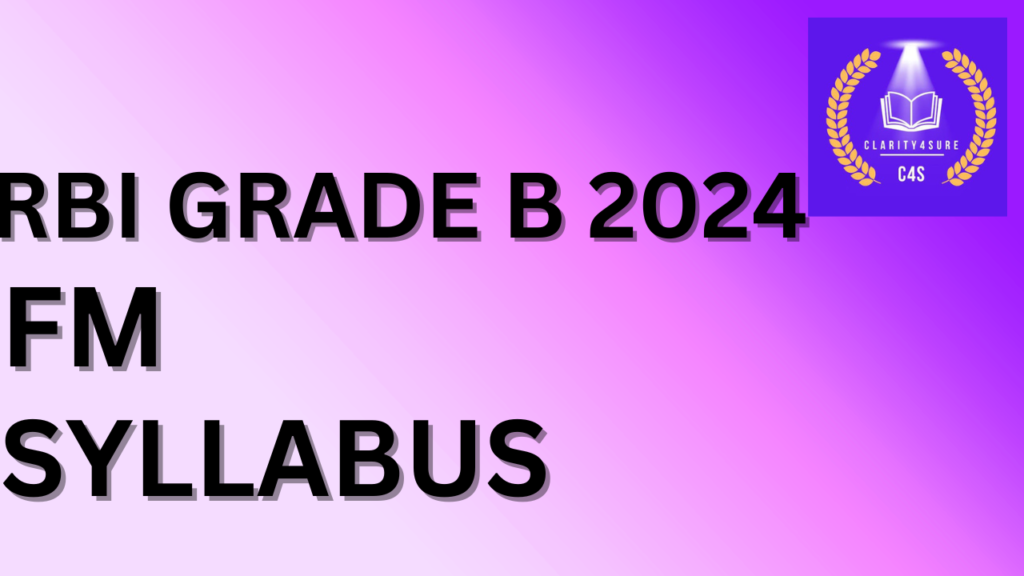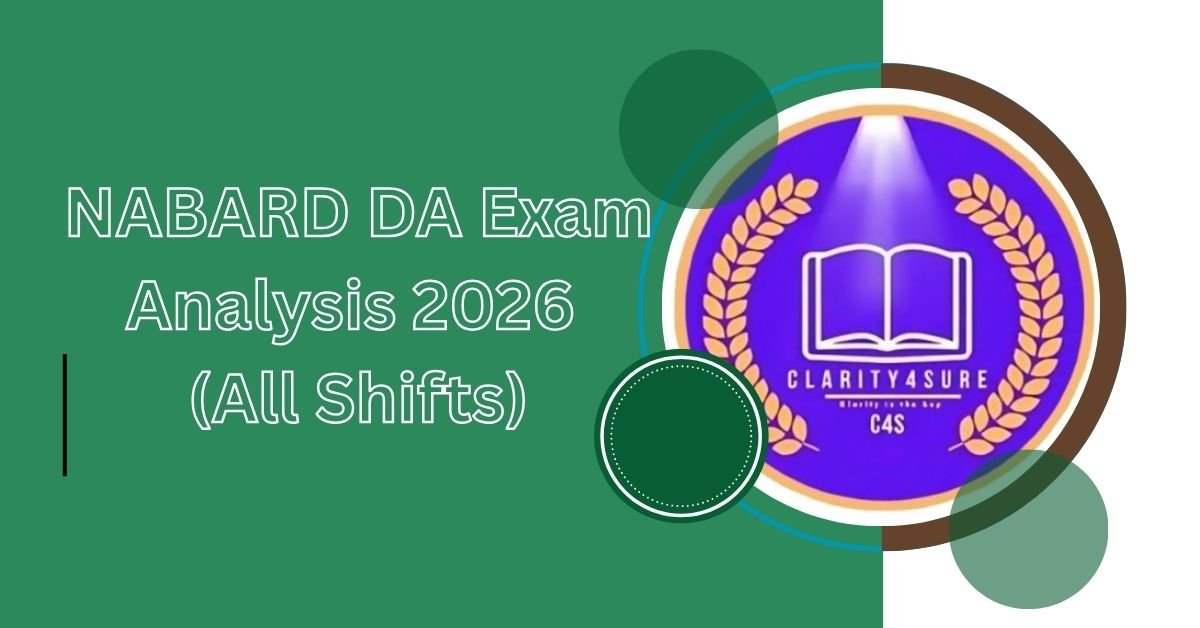
FM ( Finance and Management) is one of the 3 papers in the phase 2 exam of RBI Grade B. The Finance and Management paper is one of the highly scoring and understanding paper. The FM syllabus is important to know the topics that are asked and to categorize them as per their importance for the exam.
Below, we have mentioned the syllabus of the Finance and Management for the RBI Grade B Phase 2 exam along with the important topics.
FM Syllabus for RBI Grade B Exam
Here is the detailed FM syllabus for RBI Grade B Phase 2:
- Financial System:
- Structure and Functions of Financial Institutions
- Functions of the Reserve Bank of India
- Banking System in India – Structure and Developments, Financial Institutions – SIDBI, EXIM Bank, NABARD, NHB, NaBFID etc.
- Recent Developments in the Global Financial System and its Impact on Indian Financial System
- Role of Information Technology in Banking and Finance
- Non-Banking System
- Developments in Digital Payments
- Financial Markets:
- Primary and Secondary Markets (Forex, Money, Bond, Equity, etc.), functions, instruments, and recent developments.
- General Topics:
- Financial Risk Management
- Basics of Derivatives
- Global financial markets and International Banking – broad trends and latest developments
- Financial Inclusion
- Alternate source of finance, private and social cost-benefit, Public-Private Partnership
- Corporate Governance in the Banking Sector
- The Union Budget – Concepts, approach and broad trends
- Basics of Accounting and Financial Statements – Balance Sheet, Profit and Loss, Cash Flow Statements, Ratio Analysis (such as Debt to Equity, Debtor Days, Creditor Days, Inventory Turnover, Return on Assets, Return on Equity, etc.)
- Inflation: Definition, trends, estimates, consequences and remedies (control): WPI- CPI – components and trends; striking a balance between inflation and growth through monetary and fiscal policies.
- Management:
- Fundamentals of Management & Organizational Behaviour:
- Introduction to management : Evolution of management thought:
- Scientific, Administrative
- Human Relations and Systems approach to management
- Management functions and Managerial roles
- Nudge theory
- Meaning & concept of organizational behaviour; Personality:
- Meaning
- Factors affecting personality
- Big Five model of personality
- Concept of reinforcement
- Perception:
- Concept, perceptual errors. Motivation:
- Concept, importance, Content theories (Maslow’s need theory, Alderfers’ ERG theory, Mc Cllelands’ theory of needs, Herzberg’s two factor theory) & Process theories (Adams equity theory, Vrooms expectancy theory).
- Leadership:
- Concept
- Theories (Trait, Behavioural, Contingency, Charismatic, Transactional and Transformational Leadership; Emotional Intelligence: Concept, Importance, Dimensions. Analysis of Interpersonal Relationship: Transactional Analysis, Johari Window; Conflict: Concept, Sources, Types, Management of Conflict; Organizational Change: Concept, Kurt Lewin Theory of Change; Organizational Development (OD): Organizational Change, Strategies for Change, Theories of Planned Change (Lewin’s change model, Action research model, Positive model).
- Ethics at the Workplace and Corporate Governance:
- Meaning of ethics, why ethical problems occur in business.
- Theories of ethics: Utilitarianism: weighing social cost and benefits, Rights and duties, Justice and fairness, ethics of care, integrating utility, rights, justice and caring, an alternative to moral principles: virtue ethics, teleological theories, egoism theory, relativism theory
- Moral issues in business: Ethics in Compliance, Finance, Human Resources, Marketing, etc. Ethical Principles in Business: introduction, Organization Structure and Ethics, Role of Board of Directors, Best Practices in Ethics Program, Code of Ethics, Code of Conduct, etc.
- Corporate Governance:
- Factors Affecting Corporate Governance
- Mechanisms of Corporate Governance
- Communication:
- Steps in the Communication Process
- Communication Channels
- Oral versus Written Communication
- Verbal versus non-verbal Communication: upward, downward and lateral communication;
- Barriers to Communication
- Role of Information Technology
- Fundamentals of Management & Organizational Behaviour:
Download the RBI Detailed Syllabus from the link provided : https://c4scourses.in/rbi-grade-b/rbi-grade-b-exam-2025-syllabus/


















